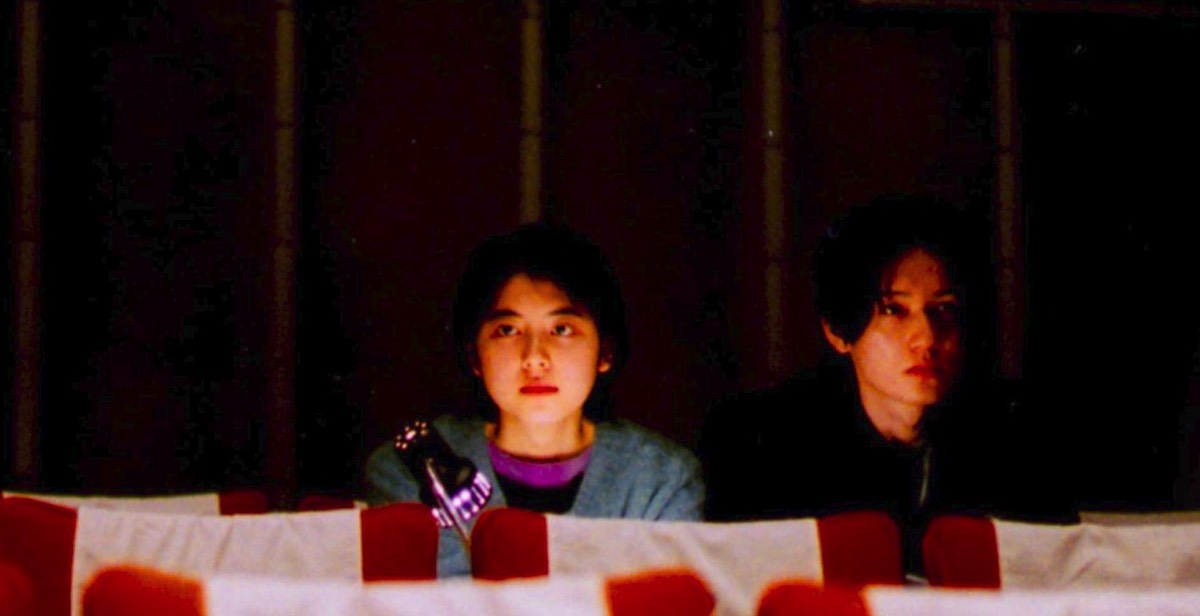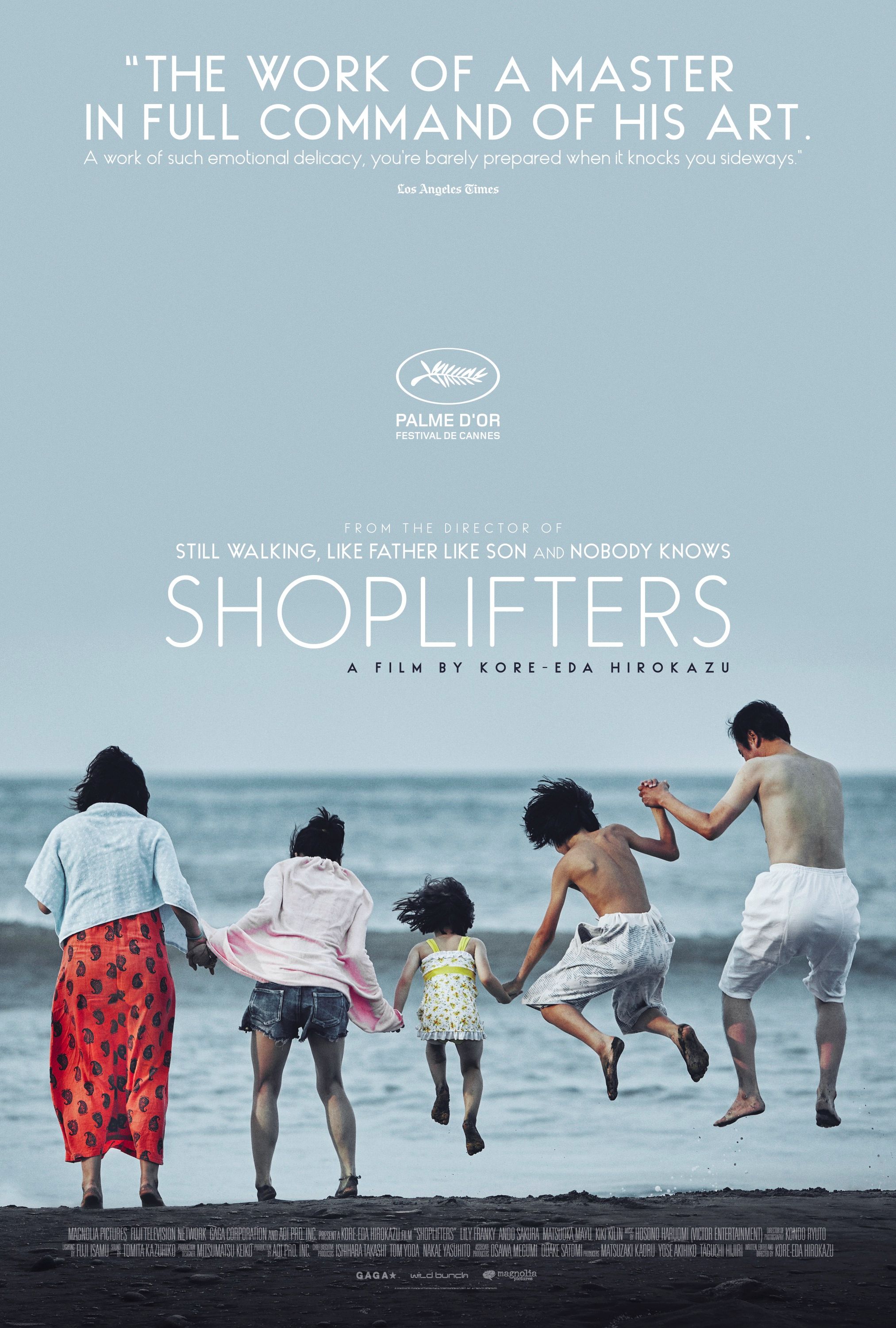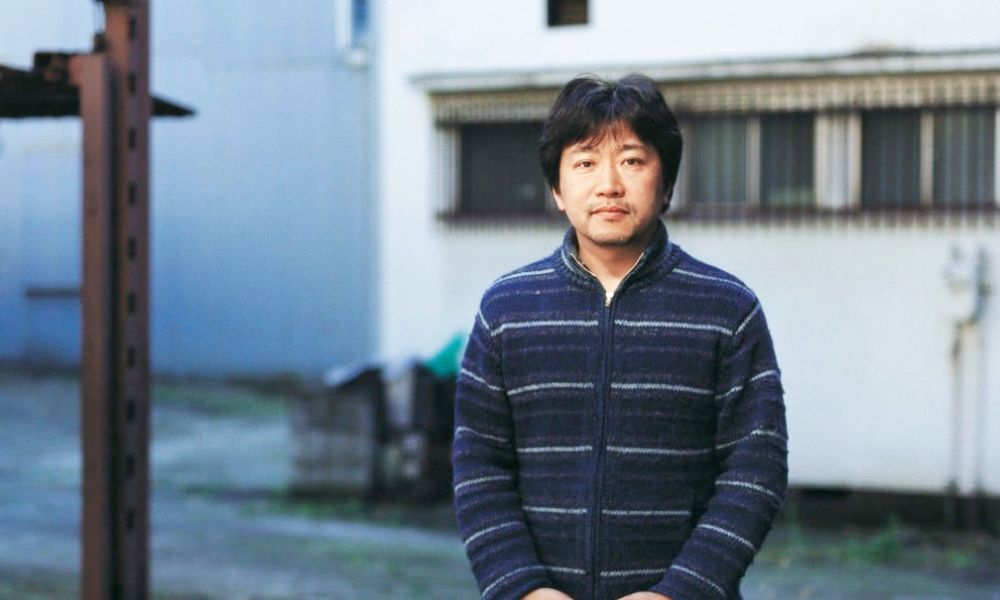"Koreeda's themes are isolation, loss, death, memory, and the search for meaning; his excellence lies in his ability to anchor these philosophical concerns in the concrete realities of daily life and individual emotion… If Koreeda's future films match the quality of his best work to date, he is likely to rank as one of the finest Japanese filmmakers of the twenty-first century." - Alexander Jacoby (A Critical Handbook of Japanese Film Directors, 2008)
Hirokazu Koreeda
Director / Editor / Screenwriter / Producer
(1962- ) Born June 6, Tokyo, Japan
Top 250 Directors / 21st Century's Top 100 Directors
(1962- ) Born June 6, Tokyo, Japan
Top 250 Directors / 21st Century's Top 100 Directors
Key Production Country: Japan
Key Genres: Drama, Family Drama, Psychological Drama, Fantasy, Slice of Life, Childhood Drama
Key Collaborators: Keiko Mitsumatsu (Production Designer), Hijiri Taguchi (Producer), Yutaka Yamazaki (Cinematographer), Kirin Kiki (Character Actress), Susumu Terajima (Character Actor), Arata Iura (Leading Actor), Kaoru Matsuzaki (Producer), Lily Franky (Leading Character Actor), Hiroshi Abe (Leading Actor), Yui Natsukawa (Leading Character Actress), Toshihiro Isomi (Production Designer), Kazuya Takahashi (Character Actor)
Key Genres: Drama, Family Drama, Psychological Drama, Fantasy, Slice of Life, Childhood Drama
Key Collaborators: Keiko Mitsumatsu (Production Designer), Hijiri Taguchi (Producer), Yutaka Yamazaki (Cinematographer), Kirin Kiki (Character Actress), Susumu Terajima (Character Actor), Arata Iura (Leading Actor), Kaoru Matsuzaki (Producer), Lily Franky (Leading Character Actor), Hiroshi Abe (Leading Actor), Yui Natsukawa (Leading Character Actress), Toshihiro Isomi (Production Designer), Kazuya Takahashi (Character Actor)
"Hirokazu Koreeda's meetings between experience and recall, documentary and fiction, are rare in modern cinema… Koreeda made his name in documentaries. Lessons from a Calf (1991) chronicled the rearing of a calf by a group of schoolchildren. His subsequent work has reflected on loss, bereavement and recollection with documentary veracity. Rejecting fly-on-the-wall objectivity, Koreeda finds realism in close-ups, long takes and studied attention to human interaction." - Richard Armstrong (The Rough Guide to Film, 2007)
"The cinema of Koreeda Hirokazu is defined by moments of everyday life. Whatever potential there is for heightened drama – the suicide of a husband, a cult massacre, abandoned children – it is diffused by the familiar rhythms of everydayness. This attention to the everyday must be understood within the context of death, which plays a significant role in all of Koreeda’s films. It is death that deepens our sense of life and makes even the most mundane moment seem profound." - kogonada (Sight & Sound, 2018)

After Life (1998)
"With his restrained yet probing contemporary dramas, writer-director Hirokazu Kore-eda has earned acclaim and devotion from cinephiles far beyond his native Japan; the Palme d’Or award at last year’s Cannes Film Festival, for Shoplifters, was the latest and most prestigious in a decades-long series of accolades. Kore-eda’s films typically explore universal themes—memory, the passage of time, the nature of happiness, what it means to be a family—through nuanced narrative structures. Circling back over events, they slowly reveal new perspectives on how characters and stories can be interpreted and understood. It is this distinctive combination of thematic concerns and formal strategies that gives Kore-eda’s films their richness and depth." - BAMPFA, 2019
"Initially an aspiring novelist, Hirokazu Koreeda began his career in documentary, making three films in this mode before rising to prominence with Maborosi, a delicate and universally praised drama widely compared to the work of Yasujiro Ozu (a critical analogy that has persisted to this day). Whilst Koreeda’s films bear clear and positive similarities to those of Ozu, this kind of comparison glosses over the remarkable idiosyncrasies of his own cinema. Whilst Koreeda’s films regularly qualify as “shomin-geki” – the genre of bittersweet family drama associated with Ozu – his families experience a more severe sense of irresolvable crisis than that characteristic of Ozu. Whilst Ozu's families are frequently haunted by the spectre of deceased parents and spouses, Koreeda’s films feature more disturbing “absences,” often the result of wilful violence, including suicide, murder, separation and abandonment." - Melbourne Cinémathèque, 2019
"Japanese filmmaker Hirokazu Kore-eda ranks among the best-known and most acclaimed directors in world cinema today. Each of his films is marked by a subtle dramatic touch, a gentle yet assured feeling for the profundity and emotional charge of everyday life, and an enduring fascination with the role of the family in contemporary Japanese society. Kore-eda has varied his approach to exploring his signature themes, resulting in a consistently touching and truly humanist oeuvre." - Film at Lincoln Center, 2018
"Koreeda’s background in documentary filmmaking and his commitment to writing his screenplays lend his films a distinct slice-of-life authenticity. Koreeda began his career in television before transitioning into cinema to make films that delve into the subtle textures of daily existence. This inclination towards realism is evident in his work, as he transforms everyday situations into deeply meaningful narratives through the power of his observant lens and evocative storytelling." - Bronze Screen Dream
"I loved films ever since I was a teenager. It was one of the only hobbies that I had. I wasn’t thinking that I would make it into my profession, but I’m so fortunate it eventually became that. If I were to complain in my situation, saying, “Oh, it’s much too tough, too stressful,” I would be one ungrateful… whatever. And that’s not something I want to be." - Hirokazu Koreeda (BFI, 2023)
Selected Filmography
{{row.titlelong}}
Hirokazu Koreeda / Favourite Films
Antoine and Antoinette (1947) Jacques Becker, Hangmen Also Die (1943) Fritz Lang, His Girl Friday (1940) Howard Hawks, Notorious (1946) Alfred Hitchcock, Short Cuts (1993) Robert Altman, Sunrise (1927) F.W. Murnau, They Live by Night (1948) Nicholas Ray, 3 Bad Men (1926) John Ford, To Be or Not to Be (1942) Ernst Lubitsch, The Treasure of the Sierra Madre (1948) John Huston.
Source: Sight & Sound (2022)
Antoine and Antoinette (1947) Jacques Becker, Hangmen Also Die (1943) Fritz Lang, His Girl Friday (1940) Howard Hawks, Notorious (1946) Alfred Hitchcock, Short Cuts (1993) Robert Altman, Sunrise (1927) F.W. Murnau, They Live by Night (1948) Nicholas Ray, 3 Bad Men (1926) John Ford, To Be or Not to Be (1942) Ernst Lubitsch, The Treasure of the Sierra Madre (1948) John Huston.
Source: Sight & Sound (2022)
Hirokazu Koreeda / Fan Club
John Davies, Michael Leader, Gareth Evans, Lee Dong-jin, Jeanie Finlay, John Cameron Mitchell, Tara Brown, Justine Nagan, Shakun Batra, Anne Billson, Brian Hu, Kenneth Turan.
John Davies, Michael Leader, Gareth Evans, Lee Dong-jin, Jeanie Finlay, John Cameron Mitchell, Tara Brown, Justine Nagan, Shakun Batra, Anne Billson, Brian Hu, Kenneth Turan.
"Fan Club"
These film critics/filmmakers have, on multiple occasions, selected this director’s work within film ballots/lists that they have submitted.
These film critics/filmmakers have, on multiple occasions, selected this director’s work within film ballots/lists that they have submitted.


